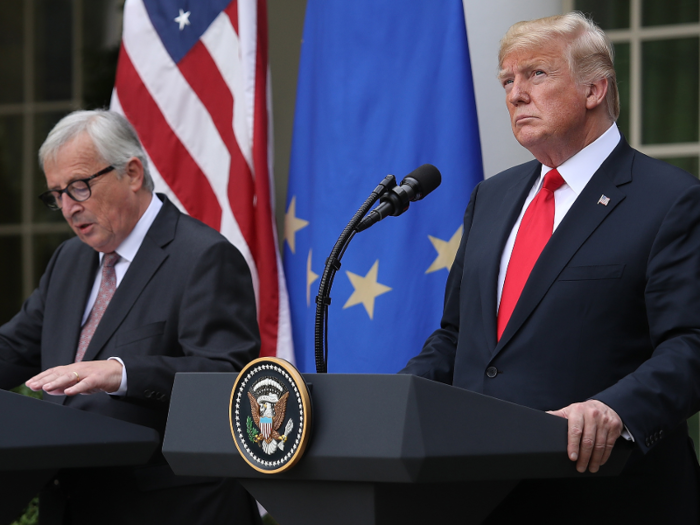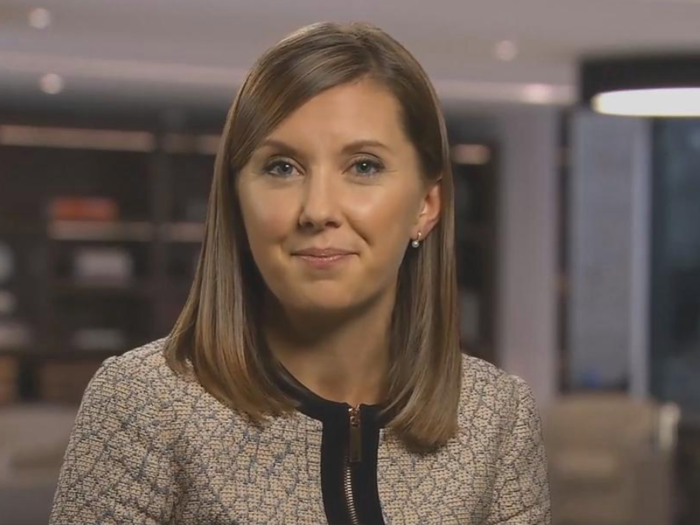- Home
- slideshows
- miscellaneous
- 'Weird' and 'purposefully ambiguous': Here's what analysts are saying about Trump's trade agreement with the EU
'Weird' and 'purposefully ambiguous': Here's what analysts are saying about Trump's trade agreement with the EU
Viraj Patel, FX strategist at ING

Gregory Daco, Head of US Economics at Oxford Economics

For Oxford Economics, it's all about seeing whether Trump's conciliatory words turn into concilliatory actions.
"Without pouring ice cold water on this apparent breakthrough in transatlantic relations, we caution that the language utilized on both side was purposefully ambiguous and general," Daco wrote to clients.
"We know from recent experience with China, that one tweet can halt communication between the two parties, and rapidly escalate into the imposition of tariffs."
He added: "The next few days and weeks will be essential in determining whether increased communication between the US administration and its European counterparts is real, and whether we will effectively see a relaunch of discussions similar to the Transatlantic Trade and Investment Partnership."
Karen Ward, Chief Market Strategist for EMEA, JPMorgan Asset Management

"That both sides have signaled a willingness to negotiate on tariffs is clearly a step in the right direction. The US administration can argue it has paved the way for lower tariffs on US goods headed into the EU, and President Juncker can demonstrate that he has protected the interests of the EU," Ward wrote.
"This has been seen to be universally positive by markets and the European auto sector is up by more than 2%."
Ward, however, advised caution, citing a similar agreement with China which has since collapsed.
"It did look as though the US had reached agreement to negotiate with China a few months ago and talks have since broken down. And it might not be entirely straightforward to reduce the tariffs facing US cars headed in to the EU.
"There is considerable vested interest to protect domestic industry within the EU given 6% of all EU employment is related to the auto industry."
Paul Donovan, Chief Economist at UBS Global Wealth Management

"The EU-US meeting on trade led to a statement that was weird. US President Trump seems to have surrendered over taxing autos. In exchange the EU offered to talk. The EU is good at talking. There were noble statements about ending tariffs, subsidies and non-tariff barriers – perhaps the TTIP talks begun under President Obama will be revived?" — Donovan told clients on Thursday morning.
Of particular note, Donovan said, was the talk of the EU importing more US soybeans.
"US President Trump tweeted that EU officials were going to buy more US soybeans," he said. "EU officials cannot do that."
Donovan added, "The US is already the largest exporter of soybeans to the EU. There are no subsidies, trade taxes or quotas on soybeans in the EU. Private farmers decide whether to buy more soybeans or not."
Popular Right Now
Advertisement